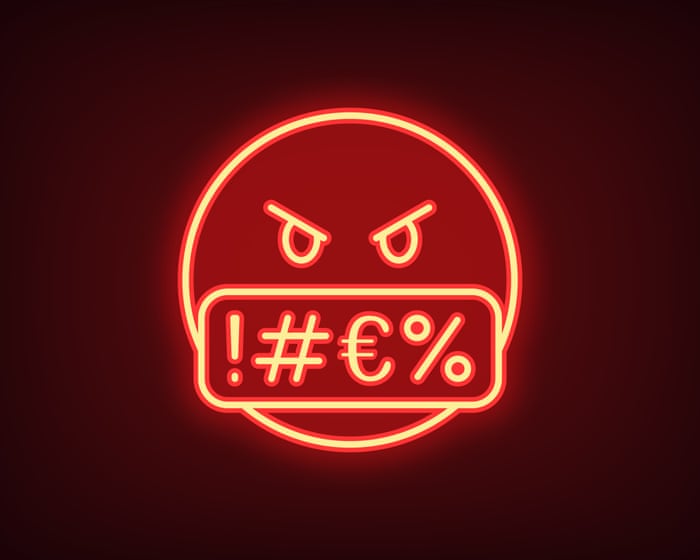When researchers asked people worldwide to list every taboo word they could think of, the results revealed striking cultural differences. For instance, the number of words varied significantly. Native English speakers in the UK and Spanish speakers in Spain came up with an average of 16 words, while Germans listed more than three times as many, averaging 53 words. These ranged from “intelligenzallergiker,” meaning someone allergic to intelligence, to “hodenkobold,” or “testicle goblin,” used to describe an annoying person.
According to researchers, these findings highlight how the often-overlooked area of social faux pas—whether swearing, insults, or other forbidden language—can shed light on the values, boundaries, and evolving norms that define different cultures.
Jon Andoni Duñabeitia, a cognitive scientist at Madrid’s Nebrija University, explained, “These words can be more or less offensive, loaded with negativity or irony. But together, they offer glimpses into the realities of each culture.”
Regarding the gap between Spanish and German speakers, Duñabeitia proposed two theories. German’s ability to form endless compound words might simply provide more options. Alternatively, speakers of other languages may not have such words readily accessible or find it harder to recall them in a neutral setting.
The study, which examined taboo words in 13 languages—from Serbian to Cantonese and Dutch—across 17 countries, uncovered other patterns. For example, the word “shit” or its equivalent ranked among the most common in several languages, including English, Finnish, and Italian, but didn’t make the top list in French, Dutch, Spanish, or German.
In contrast, words that insult women, like “bitch,” appeared across cultures. Duñabeitia, one of the dozens of researchers involved in the 2024 study, noted, “I think this reflects the deeply sexist traditions in many countries. The vocabulary mirrors societies where women have been mistreated, excluded from daily roles, and pushed into the background.”
Sexual terms also frequently emerged, suggesting a widespread unease with topics considered private or indecent.
Other words, such as “feminazi,” showed how language evolves with social and political changes. In the age of social media and its often-anonymous interactions, researchers observed a rise in harsher language, with taboo words increasingly used to target people based on race, religion, gender, or sexuality.
Simone Sulpizio, a psychology professor at the University of Milano-Bicocca and the study’s lead author, initially expected a flood of church-related curses. “But we were surprised because, while blasphemy existed in all languages, it was only among the most frequent in Italy,” he said. Italian participants listed over 24 taboo words related to the church, including 17 variations of what researchers translated as “fucking God.”
Sulpizio suggested this might be due to Italy’s close ties with the Vatican and the enduring influence of Catholic tradition. “That’s an example of how cultural or societal differences shape language,” he added.
Insults also varied by culture. “Every culture has slurs, but the target changes depending on the country,” Sulpizio noted.
The research identified a few universal trends: men and extroverts are more likely to use taboo words than women or introverts. On average, people swear once every two minutes of speech, though this rate can fluctuate based on context, topic, and the relationship between speakers.Sign up for This is Europe, a free weekly newsletter featuring the most important stories and debates for Europeans—covering topics from identity and economics to the environment.
Enter your email address to subscribe.
Privacy Notice: Our newsletters may include information about charities, online advertisements, and content funded by external organizations. If you don’t have an account, we’ll create a guest account on theguardian.com to send you the newsletter. You can complete full registration anytime. For details on how we handle your data, please see our Privacy Policy. We use Google reCaptcha for website security, and the Google Privacy Policy and Terms of Service apply.
What makes taboo words so intriguing is their dual nature—they can be used both positively and negatively, unlike most other vocabulary, according to Sulpizio. Researchers note that these words carry significant power, capable of causing harm or challenging authority, as well as easing stress and sparking humor.
Sulpizio also mentioned that swearing might offer physical benefits, referencing a study where participants held their hand in ice while saying either a normal word or a taboo word. Those who used the taboo word could endure the cold longer, suggesting these words can serve as a tool for emotional regulation.
Do you speak Sylheti, Tamajaght, or Klingon? Explore the Festival for Endangered Languages to learn more.
The versatility of taboo words may explain why they persist, despite efforts by parents, teachers, and authorities to discourage their use and their absence from formal writing.
“Typically, the most common words in a language are the most familiar. But with taboo words, it’s the opposite,” Sulpizio explained. “The more familiar or well-known these words are, the less they appear in newspapers, blogs, or similar platforms.”
A 2022 study revealed that using taboo words can profoundly influence our thoughts, behaviors, and relationships. Researchers recently noted in the Conversation that swearing was once dismissed as merely aggressive, a sign of poor language skills, or low intelligence. However, growing evidence challenges this view, encouraging a reevaluation of the nature and impact of swearing.
Frequently Asked Questions
Of course Here is a list of FAQs about Italian curses and German creativity in swearing designed to be clear concise and natural
FAQs Italian Curses German Creative Swearing
BeginnerLevel Questions
1 Whats the most famous Italian curse
Porca miseria is a very common one It literally means pig misery and is used to express frustration like damn it
2 Do Germans swear a lot
Germans can swear as much as anyone else but their swearing is often less focused on religion and more on diseases feces and creative insults
3 Why do Italian curses often involve religion
Italys deeprooted Catholic history means religious figures and concepts are a powerful part of everyday life making them potent tools for swearing
4 Whats a common mild German swear word
Scheie is probably the most common and versatile Its used in the same wide range of situations as the English equivalent
5 Is it okay to use these curses as a tourist
Generally no Even mild curses can be seen as very rude if you dont understand the nuance and context Its best to listen and learn rather than use them yourself
Advanced Practical Questions
6 What makes German swearing so creative
Germans famously combine words to create new vivid insults For example Arschgeige means a foolish person creating a funny yet harsh image
7 Are there different levels of severity in Italian cursing
Absolutely A curse like Cavolo is very mild Porco due is stronger and blasphemous curses involving Dio are considered the most severe and offensive
8 Can you give an example of a complex German compound curse
Fickfehler is a harsh advanced one It literally translates to fcking mistake and is used to describe someone who shouldnt have been born
9 Whats a key cultural difference in the target of curses
Italian curses often wish misfortune



